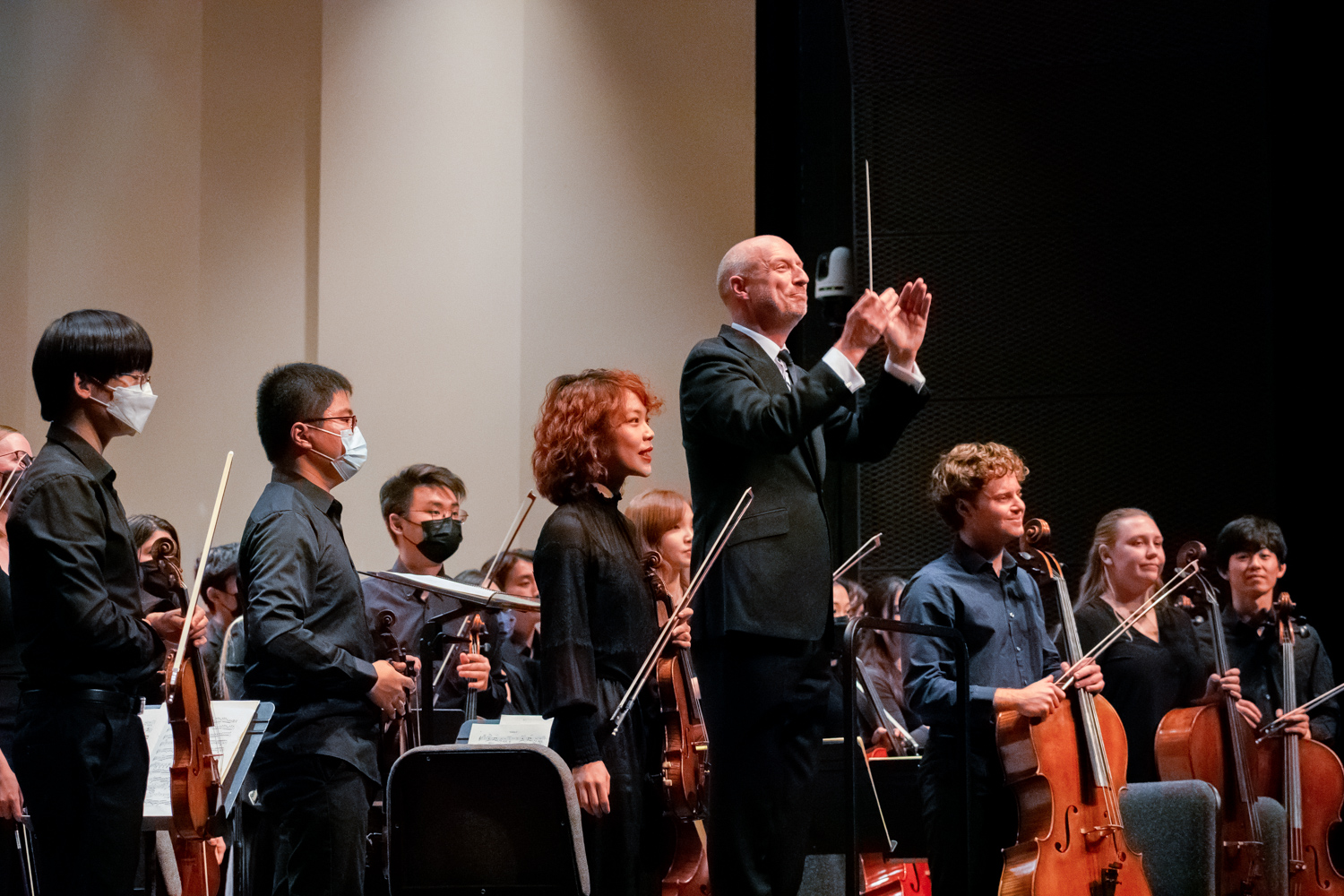
To honor its 150th anniversary, the Boston University School of Music hosted a concert Saturday highlighting the work of past and present composers with BU roots. The concert was just one event amongst a host of celebrations that have been held to commemorate the school.
The SoM’s Composition Department and BU’s contemporary music ensemble in residence ALEA III presented the show in the SoM Concert Hall.
The SoM — formerly known as the College of Music — opened its doors in 1872, becoming the country’s first institution to grant music degrees, according to the CFA website. Later, music, theatre and visual arts schools were merged under what is now known as the College of Fine Arts.
“The College of Music was one of the founding colleges of the University in 1872,” CFA professor of music Richard Cornell said. “[SoM] has this history of innovation and tradition at the same time.”
For the concert, ALEA III commissioned a piece called “Origins” by SoM alum Thomas Weaver, which featured an ensemble of faculty, students and guest performers.
“Boston’s classical music community is pretty extensive, and we’re always at each other’s houses working,” Cornell said. “So you can expect to see all kinds of musicians on that stage.”
Except for Weaver’s, all other pieces in the program are by SoM faculty who have passed away, including John Goodman, Joyce Mekeel, Gardner Read, Norman Dello Joio, Lukas Foss and ALEA III founder Theodore Antoniou.
“All of these composers represent different aspects of our 20th century history,” Cornell said.
SoM senior lecturer Rodney Lister said he wishes the concert also celebrated composers who are still alive and working at the SoM.
“There’s a focus … on celebrating composers who taught here and who are dead, but there’s not the same emphasis on doing anything about the composers who are actually alive and working here,” Lister said.
But Lister also said he acknowledges there’s a risk with playing music of composers who are still alive.
“If you say you’re playing something by Beethoven or Mozart or Haydn … the music is bound to be great,” Lister said. “You say you’re playing something by a living composer you never know … people tend to like what they know.”
ALEA III treasurer Sam Headrick, who is an emeritus SoM associate professor, said Antoniou“lived for new music.” Antoniou was an SoM professor of composition and the director of ALEA III.
“He supported young composers of every type of aesthetic,” Headrick said. “He would play every different style, which is so healthy because what we want is every young artist to be who they are, not to be forced into doing a style that is academically correct, so to speak.”
ALEA III continues that spirit by letting “each composer be their own personality,” Headrick said.
“[Antoniou] passed away now, but he formed a group, he wants it to continue going, so he has an endowment,” Headrick said. “And so his students and colleagues are keeping that group going.”
For Headrick, who first came to BU when he was 29 years old and left last year after 41 years, the concert served as a memory of his time at BU.
“That’s my professional lifetime,” Headrick said. “I know all of the composers except one.”
Headrick said his four decades at BU were a privilege.
“I’m doing what I love doing. I’m teaching young, ambitious, hard working students who have a passion for music like me,” Headrick said. “The intention is to see this student as your colleague in the future.”
The SoM has rich ties to Boston music institutions, Cornell said, and alumni tend to stick around and become part of the city’s music scene.
“If you go to any concert of any of the groups in town and any of the other orchestras or choruses that use orchestras or opera companies, you will see our students,” Cornell said. “They’ll be either in the pit or on the stage.”























































































































